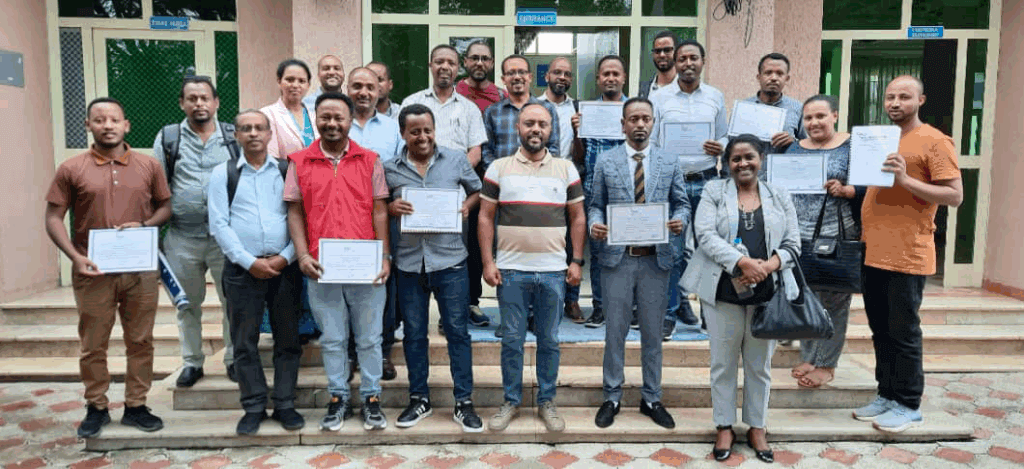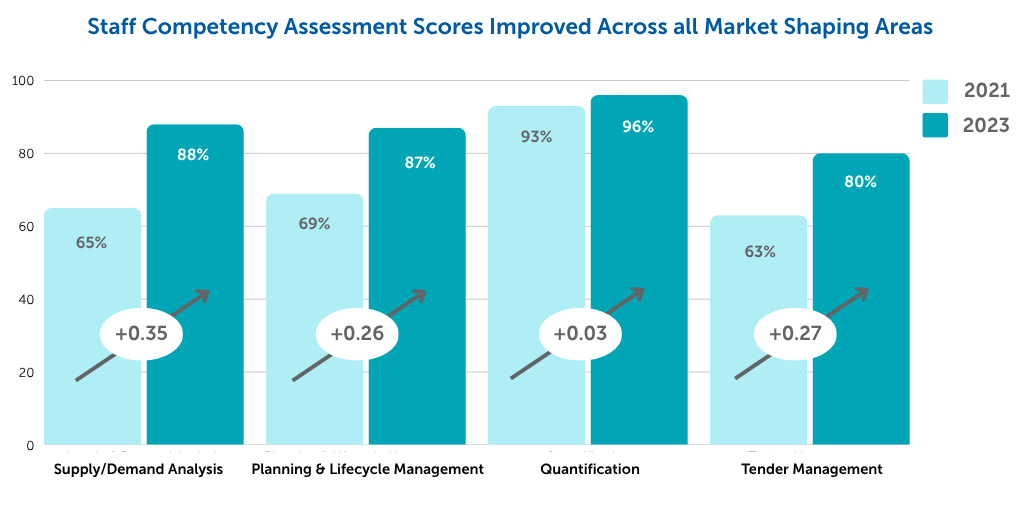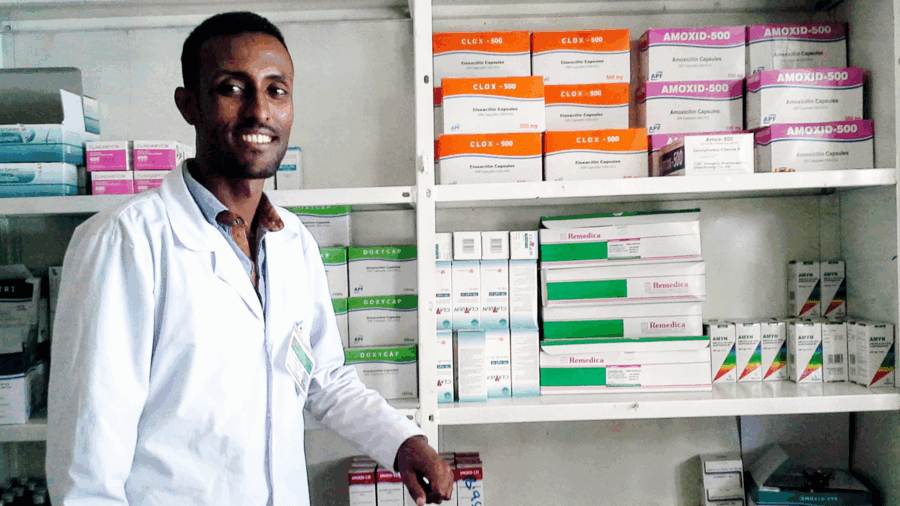To address these challenges, Ethiopia’s Pharmaceutical Supply Service (EPSS) took an ambitious step in 2018 by creating a specific unit withing the agency — the Quantification and Market Shaping Directorate — to strengthen forecasting, procurement and supplier management.
The Quantification and Market Shaping Directorate (QMSD) was launched to serve as Ethiopia’s national market manager — an entity that doesn’t just respond to shortages, but actively steers the market by working with suppliers, regulators, and financiers to prevent stockouts, reduce waste, and ensure a steady flow of quality affordable medicines in the public health system. However, early efforts revealed significant gaps in the systems, skills and capacity needed to fully realize this role.
In response, Ethiopia’s Pharmaceutical Supply Service requested support from Results for Development (R4D). In 2019, with support from the Gates Foundation, a new partnership was launched — the Ethiopia Market Shaping Capacity Improvement Project (EMSCIP). The goal was to co-design a comprehensive market shaping approach in Ethiopia and to catalyze the capacity of the QMSD to play a lead market manager role.
Market shaping is an approach to identify root causes of market shortcomings and develop and implement market-based interventions to improve the availability, affordability and reliability of products and achieve sustainable impact.
The partners began by co-conducting an assessment that revealed critical barriers across financing, procurement lists, product registration, forecasting, and the management of contracts and supplier bids. Based on these findings, R4D and our Ethiopian partners codesigned a comprehensive three-year market shaping strategy which provided clear guidance to EPSS and QMSD leaders on how to continuously identify and address major market challenges. They also co-developed a plan to build capacity among QMSD staff and leadership through coaching, mentorship, targeted technical assistance and training.
R4D and Ethiopia’s Pharmaceutical Supply Service conducted a baseline market shaping competency assessment in 2021 to identify key capacity strengthening needs. Using the findings, R4D developed market shaping training materials, including a facilitator’s guide and a trainee’s manual. In July 2023, the Ethiopian Ministry of Health approved the training as part of the government’s national In-Service Trainings.

QMSD staff receiving market shaping certification.
A total of 112 central and hub staff completed the standard market shaping courses. And of the 112 trainees who completed the training, 106 scored above the minimum acceptable score and were certified. When assessed in 2023, QMSD’s market shaping competency had improved significantly across all target areas.

R4D implemented these activities in close collaboration with Ethiopian leadership, actively engaging QMSD staff throughout the entire process to ensure strong ownership, and providing coaching around key market shaping techniques and skills along the way. R4D also collaborated with other key government sectors including the Ministry of Health and the Ethiopia Food and Drug Authority to effectively address cross-cutting issues that were leading to market failures.
When the assessment was repeated in 2023, clear progress was evident — including stronger financing for health commodities, more efficient procurement processes, an expanded list of registered products and suppliers, reduced wastage, and improved forecast accuracy.
Key impacts included:
- Procurement lead times fell by nearly a quarter, and purchase order approval times dropped by more than 80%.
- Forecast accuracy improved by 71%, sharply reducing costly errors.
- The number of medicines with diverse supplier options increased by nearly 50%, making the system more resilient.
- Wastage rates plummeted by 98%, ensuring medicines reached patients instead of expiring in warehouses.
- The Revolving Drug Fund budget increased by 88%, significantly strengthening financial sustainability.
Most importantly, market shaping is no longer an ad-hoc, externally driven activity in Ethiopia. It is now embedded into the country’s long-term Pharmaceutical Supply Transformation Plan and integrated into professional development programs, ensuring these gains can endure. Furthermore, Ethiopia is the first country in Sub-Saharan Africa to focus on building market shaping capacity at the national level — setting a precedent for the region.
Encouraged by this progress, Ethiopia has launched the next phase of this work to further expand capacity, diversify suppliers and strengthen domestic financing. With R4D’s continued partnership, the country is charting a new path — one where health facilities are reliably stocked, and families can count on having access to the health products they need.
We are filled with deep gratitude for R4D’s generous and unwavering support. Your contribution has been instrumental in helping us with technical and financial support for EPSS to develop new initiatives. Thanks to your commitment, we have achieved significant milestones which are critical for the implementation of EPSS’ new proclamation. R4D’s partnership not only sustains our mission but also inspires our team and beneficiaries alike. We are honored to have you as part of our journey and look forward to another impactful year together.” – Haftu Berhe Director, Quality Assurance and Control EPSS




















